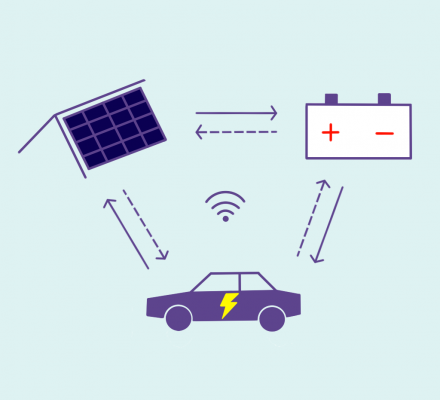
- This event has passed.
Public values in smart grids (Webinar)

About this webinar
A fully renewable electricity system is largely powered by wind and solar. These are intermittent energy sources. How do we keep supply and demand in balance? Data and artificial intelligence will play a major role in this balancing act. Smart electricity grids help adjusting supply and demand, using data on the forecasted weather, the available power storage and conversion capacity, and the willingness of companies and households to make their electricity consumption dependent on supply and price.
A smart grid is not necessarily fair, transparent, and privacy-friendly. It doesn’t necessarily allow for human control over algorithms and democratic participation. How can we integrate these public values into the design of smart grids, from local microgrids to centralised macrogrids?
The Green European Foundation, Wetenschappelijk Bureau GroenLinks, and Oikos will try to find answers to this question in a webinar. It will gather (local) politicians, practitioners, activists and members of energy cooperatives from various European countries, in a coronavirus-proof way.
The webinar will start with two presentations:
Fabian Reetz (100 prozent erneuerbar stiftung, Berlin) will explain the basics of a smart electricity grid and its importance for speeding up the transition towards a 100% renewable energy system.
Christine Milchram (Delft University of Technology) will speak about smart grids and energy justice. How can fairness, data privacy and other public values be integrated into smart grids?
The first comments to the presentations will be delivered by Yvonne van Sark, president of homeowner’s association Schoon Schip, which runs a smart microgrid in Amsterdam.
The webinar will be facilitated by Dirk Holemans (Oikos).
This is a joint event of the GEF projects A Charter for the Smart City and Cities as Places of Hope.
Timetable
14:00 Welcome by Dirk Holemans
14:15 Presentation on smart grids and the energy transition by Fabian Reetz
14.35 Q&A
14:50 Short break
15:00 Presentation on smart grids and energy justice by Christine Milchram
15:20 First comments by Yvonne van Sark
15:25 Q&A
15:40 Group discussion
16:00 Closing words by Dirk Holemans
Language
The webinar will be conducted in English.
Platform
We will use the Zoom video conferencing platform. It is recommended to join the webinar via a PC. You don’t need to install additional software. However, for the best user experience and full participation features, we recommend to install the Zoom Desktop App, which is free.
Registration
Required. Please note that the number of participants is limited, so register soon following this link.
——
Background information
Energinet, Smart Grid Denmark (video), 2011
Fabian Reetz & Céline Göhlich, Prinzipien für die Energiepolitik der Zukunft, policy brief Stiftung Neue Verantwortung (in German), 2020
Marten Boekelo, ‘Full interview with Christine Milchram on energy justice in smart grids’, The Social Life of Energy blog, 2020
Christine Milchram & al., ‘Energy Justice and Smart Grid Systems: Evidence from the Netherlands and the United Kingdom’, Applied Energy, 2018
Otto Barten, ‘Smart grids in de slimme stad’, Handvest voor de Slimme Stad, pp. 85-112 (in Dutch), 2019
European Data Protection Supervisor, TechDispatch #2: Smart Meters in Smart Homes, 2019
Green European Foundation, A Charter for the Smart City, 2019
Details
- Date: 7 May 2020
-
Time:
2:00 pm - 4:00 pm
- Event Category: Webinar

